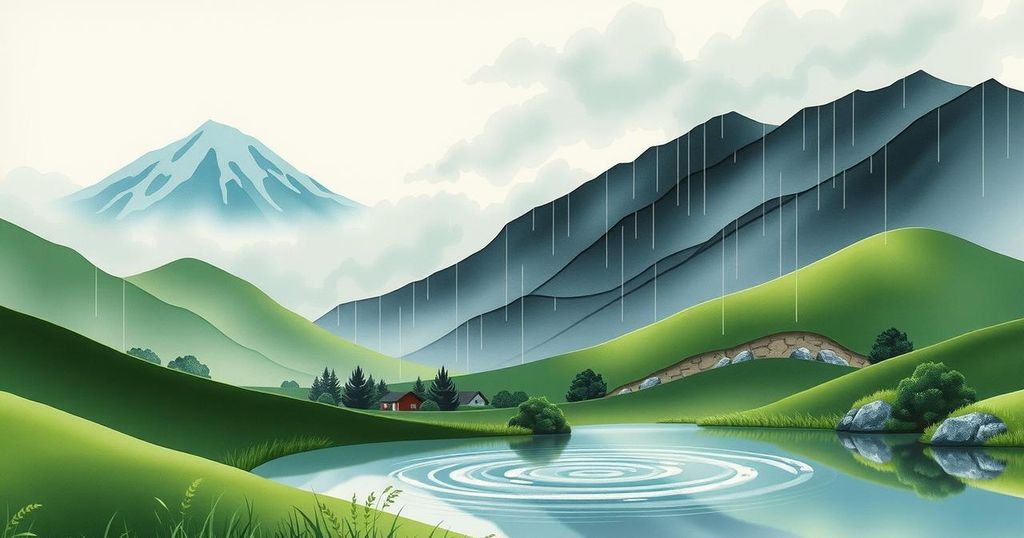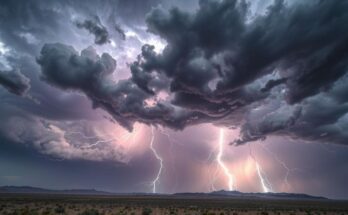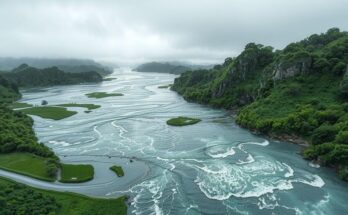Rainfall has helped to control the spread of a major wildfire in Ofunato, Japan, which has been ongoing for over a week, resulting in one death and evacuating over 4,500 residents. The blaze has burned approximately 2,900 hectares, making it the largest in over fifty years. Although rain has alleviated some conditions, safety assurances are necessary before residents can return home.
Officials announced that recent rainfall has significantly reduced the propagation of Japan’s most severe wildfire in over fifty years, which predominantly affected the northern city of Ofunato. The fire, which has been active for more than a week, tragically resulted in one casualty and led to the evacuation of over 4,500 residents. Local authorities have expressed optimism, attributing part of the decreased intensity to the rainfall that began on Wednesday following a historically dry spell.
Ofunato’s Mayor Kiyoshi Fuchigami conveyed cautious positivity during a briefing, stating, “Thanks in part to the rain, the situation has subsided to an extent.” He confirmed that evacuation orders would remain in effect until safety conditions improved. Despite some lingering sources of fire and smoke, community members reflected a more hopeful sentiment, celebrating the absence of smoke’s visibility, with one elderly resident expressing relief to NHK regarding the rainfall.
The wildfire has scorched approximately 2,900 hectares (7,170 acres), making it Japan’s largest in more than five decades, surpassing the 2,700 hectares affected during a 1975 Hokkaido fire. Additionally, Ofunato has experienced unprecedented dry conditions this year, with merely 2.5 millimeters of rain measured in February, breaking prior record lows and remaining far below the seasonal average.
Reports indicate at least 78 structures sustained damage, although assessments are ongoing. While the number of wildfires in Japan has dropped since the 1970s, the total surged to approximately 1,300 in 2023, primarily between February and April, typically characterized by lower humidity and intensified winds.
Former New South Wales fire and rescue commissioner Greg Mullins highlighted the unusual nature of this wildfire, as well as similar occurrences in Los Angeles, which transpired during the typically cooler winter months. He noted the fires’ relation to preceding hot summers, increased evaporation, and climate change’s influence in altering weather patterns, reflecting a concerning trend affecting ecosystems globally.
In conclusion, Japan’s recent wildfire incident has underscored the impacts of climate change and the increasing prevalence of extreme weather. The welcomed rainfall has provided temporary relief and significantly aided firefighting efforts. However, the residual challenges remain, underscoring the ongoing need for preparedness and adaptation strategies in the face of evolving environmental conditions.
Original Source: www.news-expressky.com




